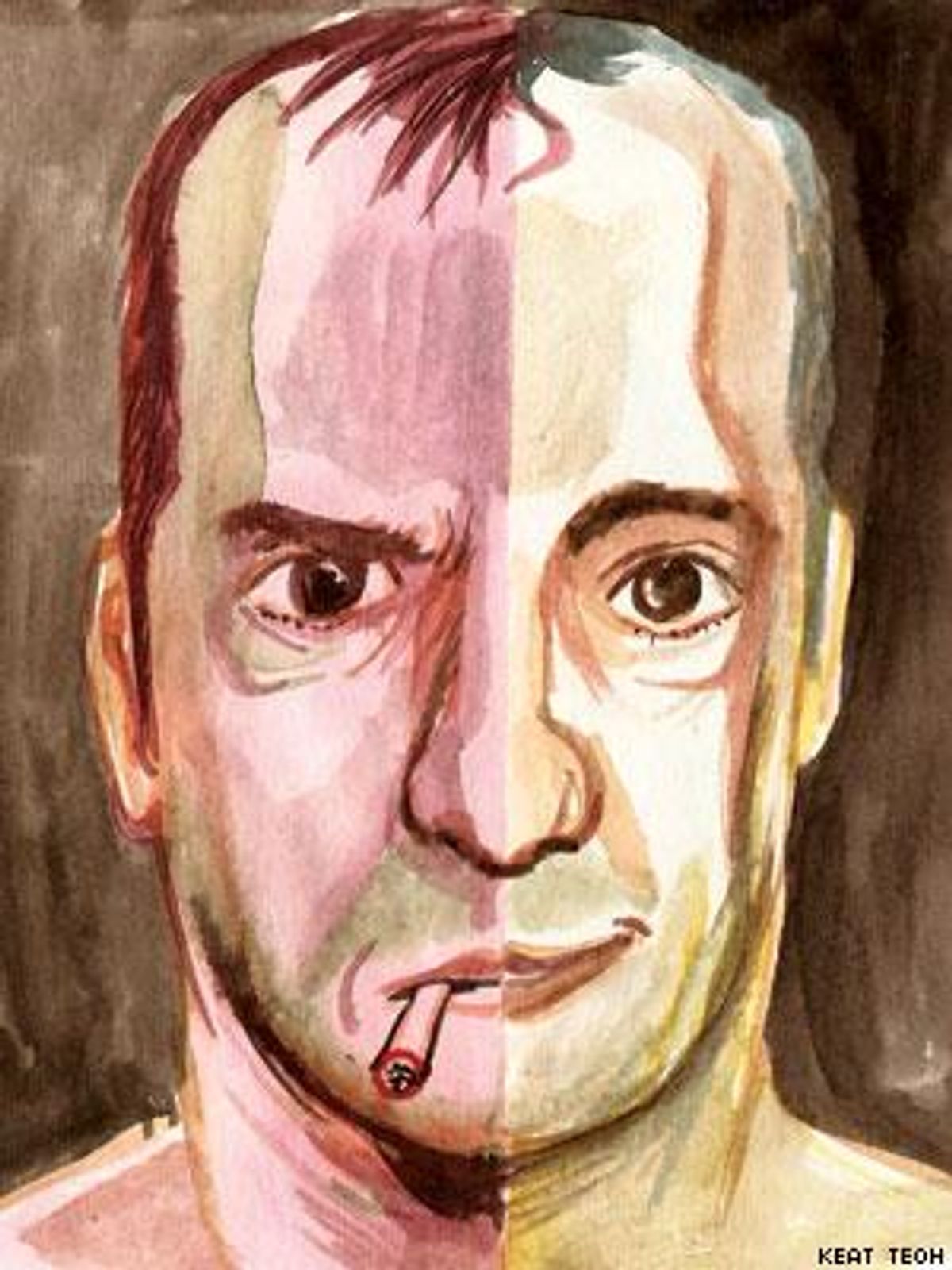News & Opinion
Stephin Merrit: Only The Lonely

By continuing to use our site, you agree to our Private Policy and Terms of Use.

As a writer, it's hard not to like the Magnetic Fields, the rueful, eclectic pop band headed by singer Stephin Merritt. That's because Merritt is, with a margin to spare, the best lyricist of his generation. I am not the first to say that you'd have to go back to Cole Porter to find another American songwriter with such a genius for playing off clich' to produce real art. But whereas Porter was a closeted dandy and a sophisticate, Merritt is an openly gay misanthrope, with a wonderfully unfashionable disregard for fashion.
His sly whimsy is on full display in Strange Powers, the new documentary about him and his band. Over the years, Merritt has developed a reputation for being a particularly ornery subject, but here he rarely displays anything more than coyness. Asked if he's ever gone to an acupuncturist to try to quit smoking, he says it's not a good idea for him to be in a room with so many needles (take from this what you will).
'I come up with most of my song ideas while sitting in dark gay bars listening to thumping disco music,' he tells his interviewer at one point, standing outside just such a bar. 'This is not something I do for an hour. This is something I do for eight hours.' One wouldn't think that eight hours in a dark gay bar would inspire such sublime lyrics, but upon reflection it makes sense. 69 Love Songs, the band's landmark 1999 album, on which each of the 69 tracks is written in a slightly different genre, is full of hapless, lovelorn speakers whose voices dance across the always slightly ironic arrangements of keyboard, strings, and guitars, rescuing themselves from the abyss with the sheer cleverness of their despair.
In Strange Powers, filmmakers Kerthy Fix and Gail O'Hara give us the story of a shy, aloof, verbally brilliant gay kid growing up in the 1980s post-punk Brit-pop era. A kid who, with the sheltering love of his best female friend and musical collaborator, Claudia Gonson, never relinquished the youthful, outsider, lovelorn agony of that era. In much the way that Proust never gave up his own lovelorn agony, choosing (if that's the right word) to dilate on it endlessly instead and to beguiling effect.
In a sense, this is the movie's theme: the central role that friends and collaborators have played in giving Merritt the time and space to write his music. Chief among these is Gonson, with whom he's been working almost daily for 20 years.
The most touching moment comes toward the end, when Merritt has moved to L.A. to try his luck writing music for the movies. Gonson has devoted herself to the Magnetic Fields; his departure has left a huge gap in her life. 'But I think he's so happy there,' she says, 'and even though it's not optimal for me, it's still what I would prefer because he's happier there.' It's a line spoken with no bitterness or resentment. The sacrifice is real and freely given, and the emotion shows.
Strange Powers, with its concert footage, band interviews, and no-frills camera work, befits Merritt's unfussy style. Long v'rit' shots of recording sessions in the East Village studio where Merritt lived most of his adult life may not always have the same originality as their subject, whose wit rolls dryly off his tongue throughout, but the film has the same playful nonchalance that Merritt brings to his songwriting. It's a fan letter, to be sure, but it's also a reminder to anyone interested in how music and art get made that the process takes love and friendship offered without promise of fame or fortune.
Adam Haslett is the author of Union Atlantic and You Are Not a Stranger Here. Strange Powers is now playing in select theaters nationwide.
Beware of the Straightors: 'The Traitors' bros vs. the women and gays